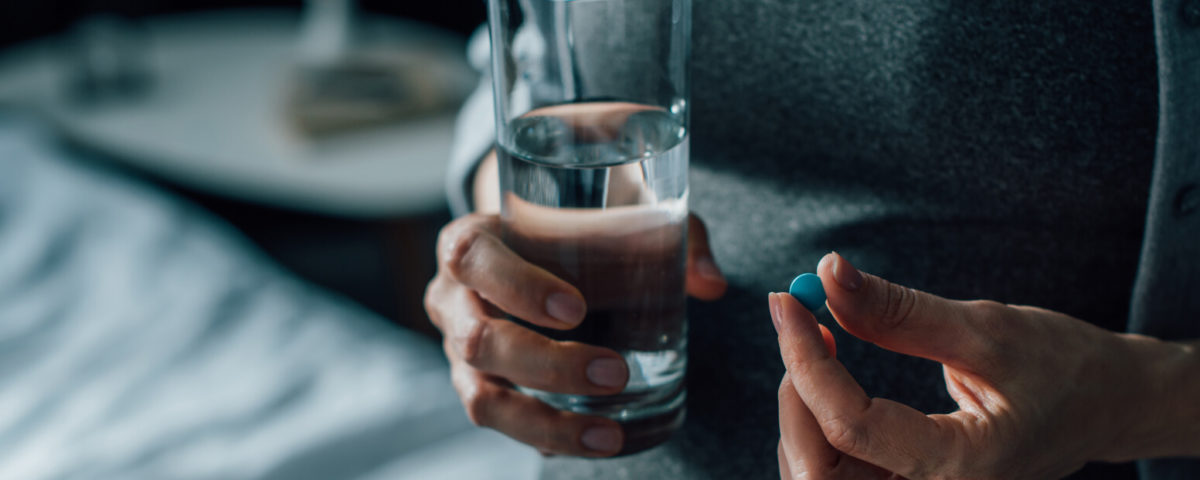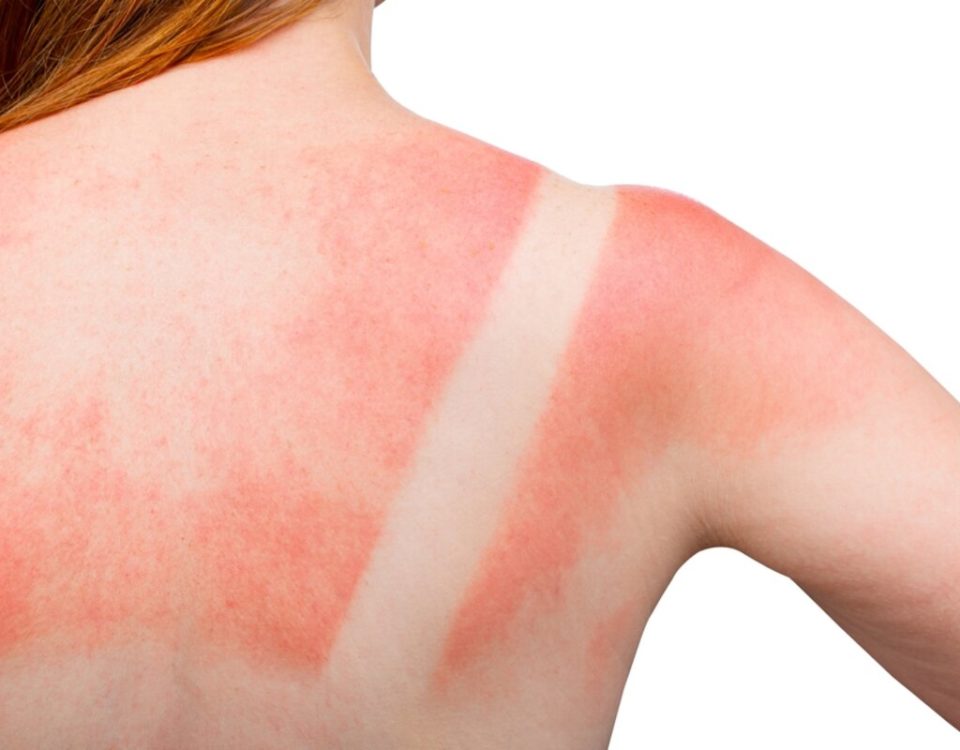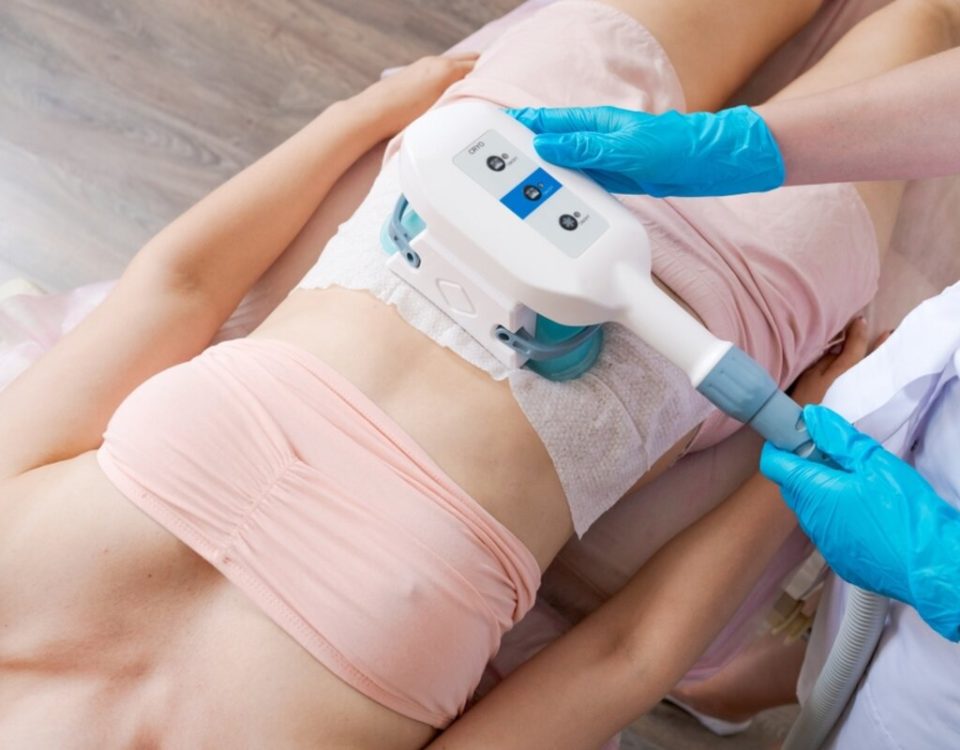
5 Reasons You Should Try Dermaplaning
September 22, 2020
Winter Skincare Guide
October 14, 2020Facial treatments have quickly become the favorite cosmetic and medical spa treatments in recent years. Procedures like microdermabrasion, laser hair removal, and chemical peels have quickly become household topics since advanced therapies are more accessible than ever. However, medications like antidepressants, antihistamines, and allergy prescriptions can potentially interfere with various facial treatments’ effectiveness.
If you’re considering undergoing any type of facial treatment, talk with your doctor and a licensed aesthetician to understand how your medication regime may react with the procedure you’re seeking. Take time to educate yourself about the risks involved with undergoing facial treatments while on certain medications, so you can make an informed decision about whether or not it’s right for you.
How Medications Impact the Safety and Effectiveness of Facial Treatments
Many different medications help people with afflictions ranging from mild to severe. Advancements in medicine are impressive and have saved countless lives. However, certain drugs can interact with facial treatments to cause serious side effects or worse. These types of medications are called relative contraindications.
1. Contraindications: A drug, procedure, or surgery that should not be used because it may be harmful to the patient.
2. Relative Contraindications: Two drugs or procedures used in unison that can have adverse effects when combined.
Facial treatments, especially those that use lasers or UV lights, can react with different medications and cause severe problems because they are considered photosensitive. Combining certain drugs with cosmetic procedures can cause photosensitive eruptions on a patient’s face or skin. Before undergoing any type of facial or skincare procedure, consult your doctor, and a professional aesthetician to better understand how the medications you are taking might interact with the process.
Types of Medications That Might Interfere With Facial Treatments
The following types of medications are commonly used by Americans to treat a broad spectrum of symptoms, disorders, and illnesses. While they’re incredibly useful in combatting specific issues, they can also pose a problem when combined with a facial procedure. Read through this list of contraindications and consult with your doctor before taking any steps in scheduling your next skincare session.
1. Acne Medications
Some of the most common contraindications out there are acne medications. Doctors provide these prescriptions to people battling severe acne on their face and other areas of the skin. While they’re incredibly useful on their own, acne medications can pose severe risks to patients undergoing facial treatments. If you’re taking the following acne remedies, avoid seeking skincare procedures until your acne subsides:
- Accutane
- Differin
- Soriatane
Facial treatments like microdermabrasion or chemical peels can help reduce the appearance of acne scars in the future. However, while you’re still undergoing treatment for active acne outbreaks, stay away from such skincare treatments since their interaction has proven to be potentially harmful.
2. Antibiotics
Antibiotics are another common type of medication that interacts poorly with skincare products and professional treatments. If you’re on any of the following antibiotics, it’s best to let the treatment run its course before scheduling a skincare appointment:
- Tetracyclines
- Sulfonamides
- Quinolones
- Fluoroquinolones
3. Antihistamines
When a severe allergic reaction occurs, your doctor will most likely suggest prescription or OTC antihistamines. If this is the case, consider rescheduling any appointments for facial treatments until after allergy season. Some typical OTC antihistamines to avoid before undergoing any facial treatments are:
- Claritin
- Zyrtec
- Benadryl
4. Anti-inflammatory Drugs
If you’re on a regime of anti-inflammatory drugs, it’s best to reschedule your facial appointment. Even over the counter medications like Aleve, Ibuprofen, and Tylenol can have adverse effects when combined with UV lights, creams, and other topicals during facial treatments like photofacials or laser resurfacing.
5. Anti-fungals
Anti-fungals are most often used to treat fungal infections on your skin, hair, and nails. Combining antifungals with facial procedures can cause painful photosensitive eruptions on the skin. Some common anti-fungal drugs to be careful of when considering booking a facial treatment are:
- Lotrimin
- Mycoide
- Miconazole
- Fluconazole
6. Painkillers
After serious surgeries or other accidents, doctors often prescribe painkillers. Pain killers are photosensitive medications. Although these opioids are incredibly helpful when necessary, they include enormous risks and side effects, especially when combined with treatments involving lasers or UV lights. If you’re on any of the following, talk with your doctor before proceeding with treatment:
- Hydrocodone
- Oxycodone
- Demerol
- Dilaudid
7. Psychiatric Medications/Antidepressants
As depression, anxiety, and other mental health disorders become increasingly prevalent in today’s society, many people take psychiatric medications or antidepressants. These medications are useful in treating several psychiatric disorders, but they also impact skincare treatments’ effectiveness on patients.
Before undergoing any procedure at a medical spa, ask your doctor if the medications you are on will impact its effectiveness or cause any adverse reaction. Some examples of psychiatric drugs that can impact the effectiveness of facial treatments include:
- Benzodiazepines: Xanax, Valium, Ativan, Klonopin
- Selective serotonin reuptake inhibitors (SSRIs): Prozac, Wellbutrin, Zoloft
- Phenothiazines
- Tricyclic antidepressants
8. Other Possible Contraindications
Many drugs can interact with facial treatments to cause further issues for your face, skin, and body. Other medications worth mentioning that could pose a concern to certain clients include:
- Blood pressure medications
- Cardiac health medications
- Cancer treatments or chemotherapy
- Hypoglycaemics or diabetes medications
- Diuretics
- Epidermal receptor inhibitors
- Major tranquilizers
- Malaria medication
- Anti-convulsants/neuroleptics
- Anti-arthritics
- Porphyrins (Beta-carotene, Vitamin D, etc.)
- Steroids
If you’re on any of the medications mentioned above, consult your doctor to determine whether skincare treatments are appropriate for you. Risking your health and safety for simple beauty treatments is hardly worth it. Your prescribing doctor will know what drug and skincare interactions are harmful, so check with them first before scheduling a consultation.
Conclusion
If you’re on a regime of any of the contraindications mentioned above to treat various afflictions, consider rescheduling your facial treatment appointment. Unless you’re given the all-clear by a licensed medical professional and discuss the risks with your aesthetician, there is always a chance of a dangerous and adverse reaction.
If your regular medical professional feels that you’re at little to no risk of experiencing photosensitive side effects or lowered effectiveness of the treatment, contact Spa MD today to get started scheduling your next facial treatment procedure. When facial treatments are implemented correctly and effectively, you can see immense improvements on the surface of your skin immediately without interference from medications.
New Clients:
$35 deposit for all new clients
Cancellation/No Show Policy:
$35 fee for all no show, no call and any cancellations less than 24hrs before the start of your appointment.Any prepaid services will be forfeited.
Call us at +1(651)222-4490
Email us at SpaConsultantsMD@gmail.com
or, Schedule a free consultation
We are located on the main level inside of the Blair Arcade Building. We validate parking in the lot connected to the building off of Selby. Be sure to bring your ticket in with you!
Business Hours:
Monday: 9:00am - 8:00pm
Tuesday: 9:00am - 5:00pm
Wednesday: 9:00am - 8:00pm
Thursday: 9:00am - 8:00pm
Friday: 10:00am - 5:00pm
Saturday: 9:00am - 2:00pm (3 Saturdays per month- please call or email for more information)




